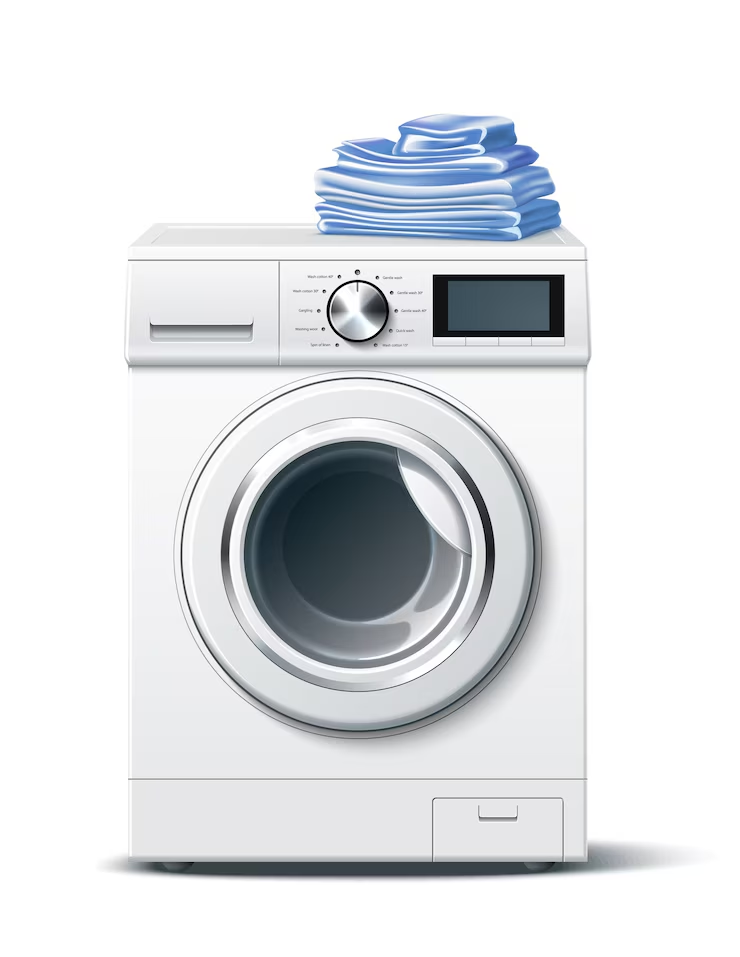Washing Machine Care: Suggestions to Ensure It Operates as If It Were Brand New
Table of Contents
A washing machine is among the most diligent appliances found in any home. From everyday laundry tasks to thorough cleans, it assists us in maintaining cleanliness, organization, and efficiency. Nevertheless, like any appliance, it necessitates consistent care and maintenance to operate smoothly.
Regrettably, numerous individuals neglect the maintenance of their washing machines until issues emerge — such as unusual sounds, improper water drainage, or clothes not being cleaned adequately. The positive aspect is that with minimal attention and regular upkeep, you can prolong the lifespan of your washing machine and avert expensive repairs.
In this blog post, we will discuss all you need to know about maintaining your washing machine — whether it is a top-load or front-load model — and provide straightforward tips to ensure it operates efficiently for many years.
Why Washing Machine Maintenance is Important
Before we proceed to the how-to section, it is crucial to comprehend why maintenance is vital:
Enhances performance: A properly maintained machine cleans clothes more efficiently.
Extends lifespan: Prevents malfunctions and prolongs the life of your appliance.
Lowers energy costs: A clean, efficient machine consumes less electricity and water.
Prevents mold and mildew: Regular cleaning eliminates unpleasant odors and buildup.
Saves money: Avoids costly repairs and replacements.

Washing Machine Maintenance Tips
1. Clean the Drum Regularly
Even though your washing machine cleans clothes, it also needs a wash. Detergent residue, fabric softener, and dirt can build up in the drum over time.
How to clean:
- Run an empty cycle with hot water and 1 cup of white vinegar once a month.
- For extra freshness, add ½ cup of baking soda to the mix.
- If your machine has a “Tub Clean” option, use it!
Tip: Leave the door open after every wash to let the drum dry out completely and prevent mold growth.
2. Check and Clean the Filter
The filter traps debris like lint, coins, and hair — all of which can affect the machine’s performance if not removed regularly.
How to clean:
- Locate the filter (usually at the bottom front for front-load washers).
- Remove it and rinse under running water.
- Check for any lodged debris and wipe it clean.
Frequency: Every 1–2 months or as recommended in your manual.
3. Inspect the Hoses
Washing machine hoses can wear out, crack, or even burst, leading to leaks or water damage.
How to check:
- Inspect hoses every few months for signs of wear or leaks.
- Make sure connections are secure.
- Replace hoses every 3–5 years or sooner if needed.
Pro tip: Use stainless steel braided hoses for durability and added protection.
4. Avoid Overloading
Stuffing the drum with too many clothes can strain the motor, damage the drum, and reduce washing efficiency.
What to do:
- Follow the manufacturer’s load recommendations.
- Wash heavy items like blankets or towels in smaller batches.
- Allow space in the drum so clothes can move freely.
5. Use the Right Detergent
Using too much detergent or the wrong type (especially in HE machines) can lead to residue buildup and inefficient rinsing.
Tips:
- Use high-efficiency (HE) detergent for HE machines.
- Always follow the recommended amount.
- Avoid excessive use of fabric softeners — they can clog the system.
6. Wipe Down Seals and Doors
Mold and mildew often hide in the rubber gasket around the door, especially in front-load washers.
How to clean:
- Wipe the door and seal with a mixture of water and vinegar after each use.
- Dry the gasket thoroughly to prevent mold growth.
7. Level Your Washing Machine
If your washing machine is uneven, it may vibrate excessively, make loud noises, or shift during the spin cycle.
What to do:
- Use a spirit level to check.
- Adjust the legs until the machine is flat and steady.
- Secure it tightly to prevent wobbling.
Conclusion
Caring for your washing machine is not overly demanding, yet the advantages are considerable. Regular maintenance, even if minimal, greatly contributes to the efficiency, cleanliness, and longevity of your appliance.
By adhering to these straightforward maintenance guidelines, you can relish in fresh, clean laundry while steering clear of unforeseen repair expenses and enhancing the functionality of your reliable appliance. Ultimately, a machine that is well-maintained is a content machine — resulting in reduced laundry-related stress for you!
